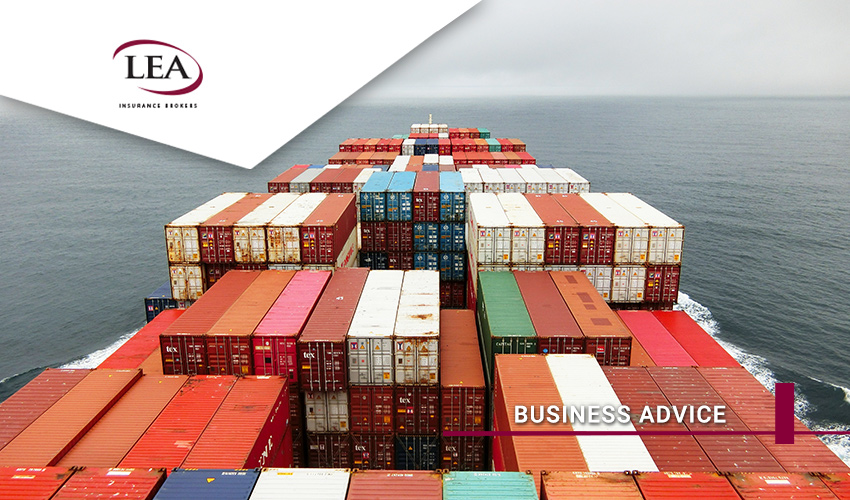
Are you all aboard with the new risks to goods in transit?
If your company orders, receives or sends goods in transit, you’ll have noticed supply chains are a different ball game thanks to the impact of COVID-19. In this article, we’ll outline the changes and how they affect your company’s risk profile as well as insurance cover.
Here are the changes in a nutshell:
- Production delays
- Ships sitting idle
- Port or country closures due to public health orders. This could mean goods would be discharged before they reach their intended destination
- Container shortages
- Re-routing of ships’ transit
- Fewer planes in the air to maintain pre-COVID-19 travel routes for cargo
- Higher quotes and charges for transit due to the above points, greater competition for space in vessels, and transit contract extensions.
But there are more risks on the horizon.
Other risks to goods in transit
When a massive cargo ship blocked the Suez Canal in March, it highlighted another set of risks for those with goods in transit. An estimated 12% of the worlds’ commerce pass through the canal. More than $12 billion of goods were held up there, so a deluge of claims is expected from companies with marine delay insurance.
Meanwhile, Australia’s trade tensions with China adds another risk closer to home. About 20% of world trade goes through the South China Sea. If China chooses to take control, such as through a change in its domestic policies, it’s a problem. We saw that with China blocking Australian imports of wine, barley, beef, lobsters, and timber.
Be mindful it can take months to work out potential losses if things go awry on the waters, as happened with the 2017 bankruptcy of the South Korean shipping company, Hanjin. The insolvency was covered in the ‘landing and warehousing” clause of many cargo policies.
Strategies to mitigate risk
You can minimise your goods-in-transit issues by:
- Analysing your risk profile
- Studying the fine print of cargo contracts (you might be contractually obliged to take out insurance)
- Packaging your goods so, so they survive stacking, forklifts, bumpy roads in trucks, and in containers on rough seas and tracking them online
- Avoiding emblazoning the box, crate, or logo with your brand or contents list to reduce the temptation for thieves
- Maintaining detailed records of decisions and costs you’ve incurred
- Using an insurance broker or adviser to organise customised over.
As well, learn about incoterms. There’s a set of internationally recognised rules which set out sellers’ and buyers’ responsibilities in export transactions.
And, to fine-tune your logistics, consider technology to give you real-time data insights so that you can make in-transit decisions. Here’s how an agrifood technology solution is helping berry producers deal with food supply chain issues.
What does cargo and transit insurance cover?
You might think the carrier and freight forwarder’s liability insurance will cover you for loss. Usually, it has many exclusions and is limited to about $2 per kilogram of your goods stolen, lost or damaged. Should your cargo be worth more, then cargo and transit insurance will give you peace of mind. It covers goods transported by sea or air.
A policy can help protect your business in these ways:
- The financial impact of goods lost, damaged, or stolen even by the vessel’s crew and staff
- Risks associated with ‘general average’, which is a marine principle that means ship and cargo owners share the loss or damage to a ship or its cargo
- Piracy, theft or pilfering
- Issues as your goods move from one place to the next, known as ‘transhipment risks’.
Here are typical policy exclusions:
- Delays causing loss or damage
- Extra costs when cargo is discharged before it reaches its final intended destination
- Delays in warehouses
- Perishable goods that arrive late, so they’ve deteriorated and are unsuitable for sale.
We can guide you on which policy type suits you best – single, open, all-risk, or named perils cover – depending on your trade volume and frequency. For example, named perils generally include cargo theft, acts of God, the vessel colliding or sinking at sea, bad weather, and the cargo not being delivered.
Useful links:
For when your cargo is transiting in Australia, check out CSIRO’s Transport Logistics portal TraNSIT
iMOVE Co-operative Research Centre – intelligent transport systems
